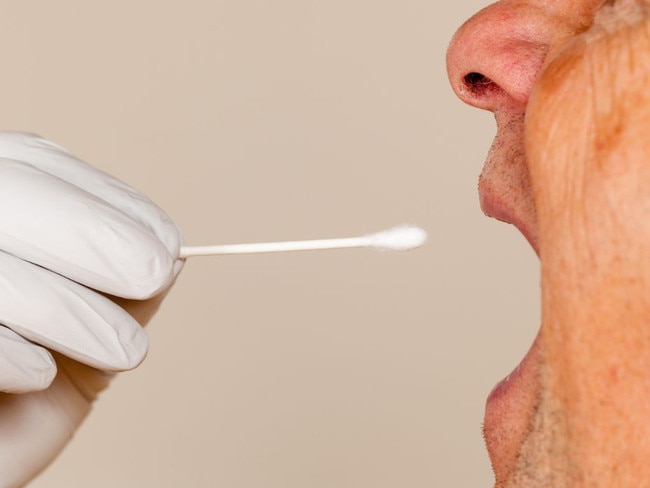Simple home ‘spit test’ can spot prostate cancer signs
A spit test done at home could be better at detecting prostate cancer than present methods like blood tests. This is what you need to know about it.
Cancer
Don't miss out on the headlines from Cancer. Followed categories will be added to My News.
A spit test for prostate cancer could be better at detecting the disease than present methods such as blood tests, a study has suggested.
The test, which analyses genetic variants in a man’s DNA, was better at finding aggressive prostate cancers and reducing false-positive results than other techniques.
The test, which can be done at home, appeared in a trial to perform better than a prostate-specific antigen (PSA) analysis.
The PSA blood test is used to check for prostate cancer and an enlarged prostate.
The authors of the study said the new test could be used as an additional tool because it reduced the number of false-positive results and detected a higher proportion of aggressive cancers.

The researchers, from the Institute of Cancer Research and the Royal Marsden NHS Foundation Trust, used spit to assess 130 genetic variants known to be associated with prostate cancer in order to develop a polygenic risk score.
The study, whose results were published in the New England Journal of Medicine, assessed 6300 men aged 55 to 69 in Britain.
Twelve per cent – 745 men – were found to have a high risk score for the cancer. They were invited for an MRI scan and biopsy, and 468 men took up this offer. Prostate cancer was detected in 187 of them, with 103 of these being offered treatment as their cancer was “higher risk”.
The researchers said that cancer “would not have been detected” in 74 of these men using the current diagnostic process in use in the UK. For the men with the highest risk, the spit test falsely identified prostate cancer in fewer people than the PSA test.
Researchers estimate that the spit test could identify up to 12,350 cases earlier, saving the NHS about pounds 500 million a year. About 55,000 cases of prostate cancer are diagnosed and 12,000 men die from it in the UK each year, according to Cancer Research UK.
Naser Turabi, of Cancer Research UK, said: “Right now, there’s no reliable method to detect aggressive prostate cancer, but this study brings us a step closer to finding the disease sooner in those people who need treatment.”
Some experts have said the cancer is currently often detected when it is unlikely to harm the patient. Professor Freddie Hamdy, Nuffield professor of surgery and professor of urology at the University of Oxford, said a screening program was likely “to cause more harm than good”.
More Coverage
Originally published as Simple home ‘spit test’ can spot prostate cancer signs




